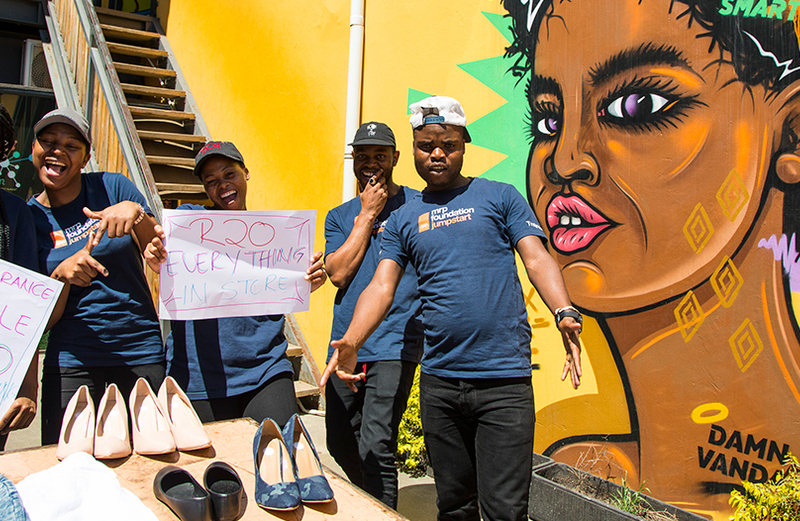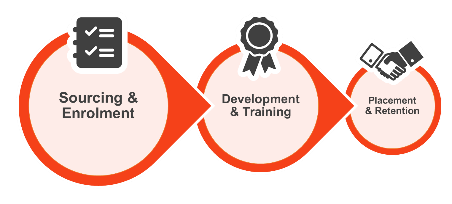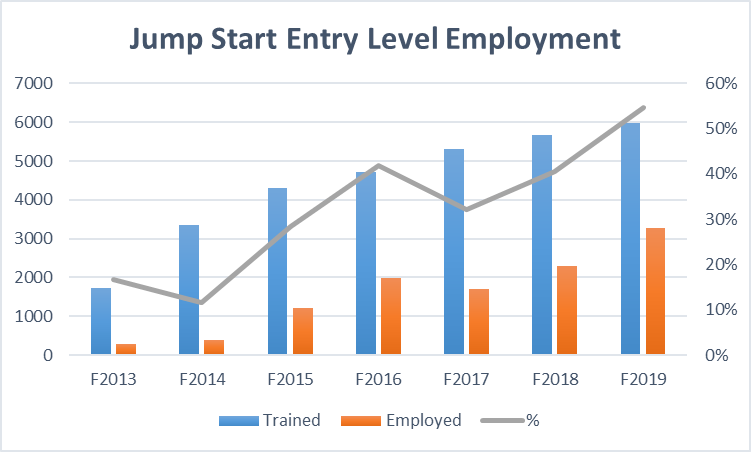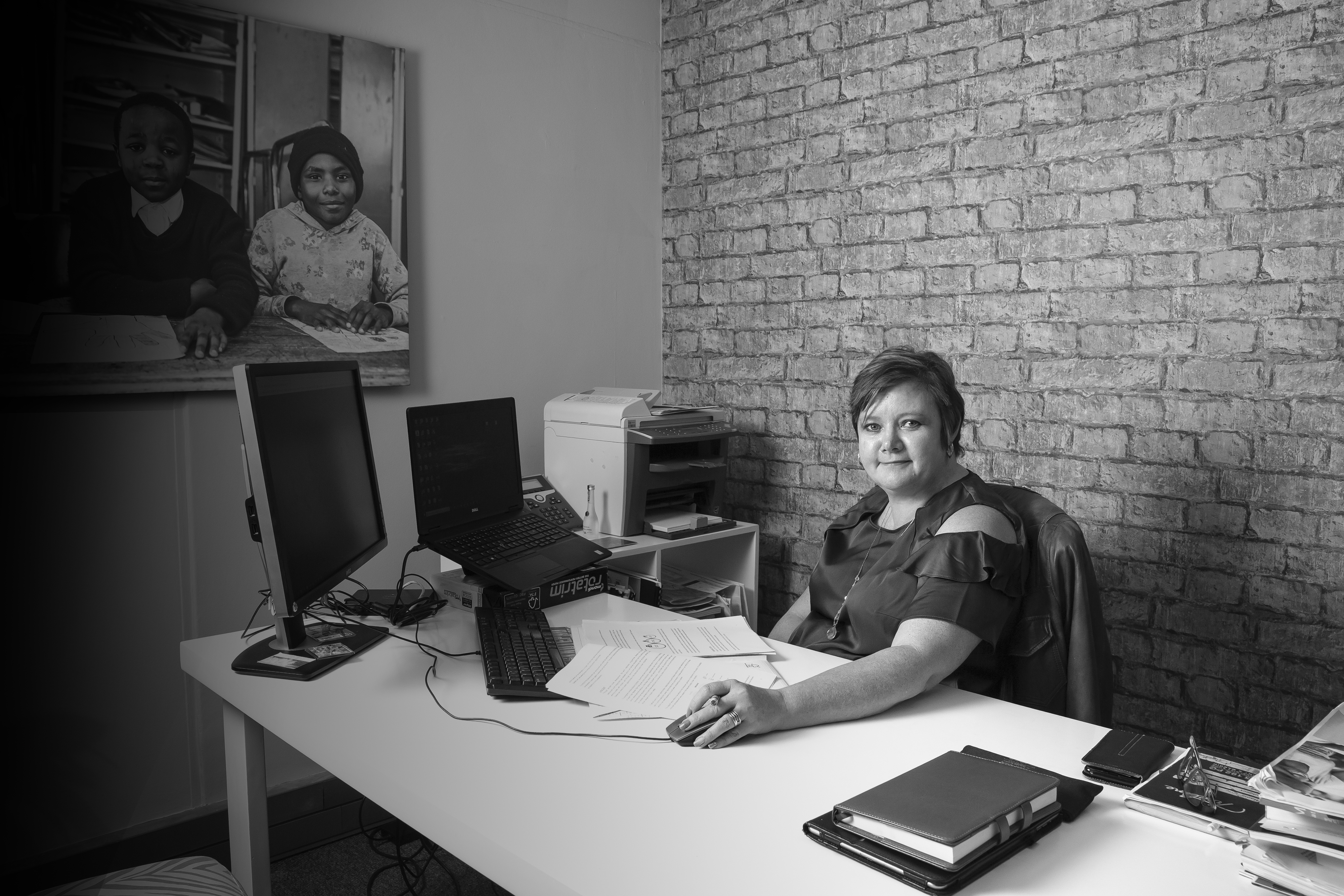What is work-readiness at entry level?


Institution: Mr Price (MRP) Foundation
Young job seekers face many challenges to becoming employable, including lack of on-the-job training and South Africa’s high youth unemployment rate. Experience reveals that Grade 12 certificates are insufficient in preparing youth for entry-level jobs. The growing gap between school leavers and the world of work requires further intervention for better preparation for the world of work. Key to this is youth being aware of what the retail sector entails and whether they can see a possible future career in this sector. MRP Foundation understands that work readiness programmes on there cannot address youth unemployment, but that processes that link suitable candidates to career opportunities.
A recent study (The Siyakha Youth Assets Study) found that despite employment programmes aimed at helping young people to get a job, 54% of participants from these programmes remain unemployed in South Africa’s shrinking jobs market. The study reflected that matching services, which facilitate relationships between job seekers and employers, and soft skills training were essential aspects that improved employability.
MRP Foundation initiated a skills development programme titled “Jump Start” in 2007. Jump Start is a work readiness programme that develops the skills of unemployed young people and links them to career opportunities in the retail sector and the supply chain.The work readiness programme uses a demand-based approach to develop the skills of unemployed youth bridging the gap between school and the world of work. School-leavers between the ages of 18-33 are provided life skills and experiential training to help them enter the job market more prepared. By working closely with industry, suitable Jump Starters are linked to career opportunities in the retail and supply chain industries.
MRP Foundation work’s together with Employment Partners to understand and meet their needs of suitable Jump Start candidates, while offering Jump Starters a solid career start. Success is measured by how many people are employed, not trained. Programmes provide candidates with an effective and versatile delivery of learning, specifically informed by, and tailored to the demands of the industry. The Entry Level Retail Programme develops school leavers for junior positions in stores, sales and distribution centres.The key focus is on sourcing of suitable candidates through different channels who want to work in retail. Successful candidates receive Life Skills training and then go to various retail stores where they gain valuable work experience in-store operations.
The diagram below reflects the approach followed to create a talent pipeline for MRP Foundation Employer Partners.

To link successful candidates to career opportunities requires careful attention to talent pool analytics. When connecting candidates to possible employment opportunities, travel need is a crucial criterion to be considered. Experience has shown that if the candidate should incur onerous travel expenditure to get to their place of employment, he/she is unlikely to stay meaningfully employed. Therefore, the sourcing of candidates is done from communities closely located to where the demand for employment exists.
The latest innovation developed for the programme is the Jump Start Learning Platform, where all pre-assessments, post-assessments, and content is published. This platform is used to conduct weekly analytics on talent pools and tracking the candidates from the start of their Jump Start journey to employment.
-
28 010 unemployed youth have been trained (2007-2019)
-
12 714 young people were placed into jobs.
The graphs below show the growth in the Retail Entry Level programme (first Jump Start programme implemented) and corresponding employment rates. The shift in focus and attention between matching supply of suitable candidates to demand from employer partners has seen the employment rate improve to the highest rate in 2019.

Success Factors
-
Working closely with Industry enables the programme to be continuously improved and aligned with the changing needs of the retail sector.
-
Being demand focused has enabled improved employment rates.
-
Candidates who are not employed still find benefit for personal growth from the Life Skills programme.
Challenges/ Barriers
-
A career in retail is often not advocated in career guidance initiatives within the schooling system. Youth who are unable to study further, may not see the benefit of taking an entry position in Retail as they are not aware of the various career options available.
-
Gaining feedback and buy-in from participating store managers can sometimes be a challenge if they are not fully aware of the intent of the programme.
-
The matching of the right candidate with the right employer partner can be difficult. Stakeholder engagement at an induvial employer partner level is critical to understand their unique requirements clearly.
Moving Forward
There is ongoing relationship building with the employer partners to strengthen processes to link suitable candidates to possible employment opportunities.
Resources
https://www.mrpfoundation.org/Articles/2018/Real-work,-real-retail.aspx
https://www.mrpfoundation.org/Articles/2017/Strong-partnership-changes-course-of-youth-unemplo.aspx
https://www.mrpfoundation.org/Articles/2018/Empowered-Women.aspx
https://www.mrpfoundation.org/Articles/2018/Budding-Entrepreneur-Dreams-Big.aspx
https://www.mrpfoundation.org/Articles/2018/Baking-a-success-with-Jump-Start.aspx
https://www.mrpfoundation.org/Articles/2018/Hope-filled-graduates.aspx
https://www.mrpfoundation.org/Articles/2017/Congratulations-class-of-2017!.aspx
https://www.youtube.com/user/redcapfoundation

